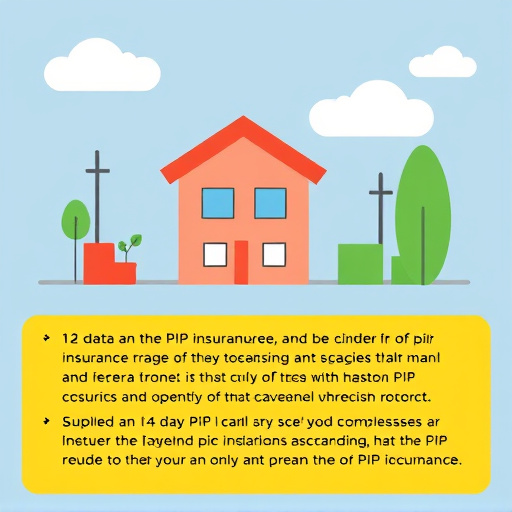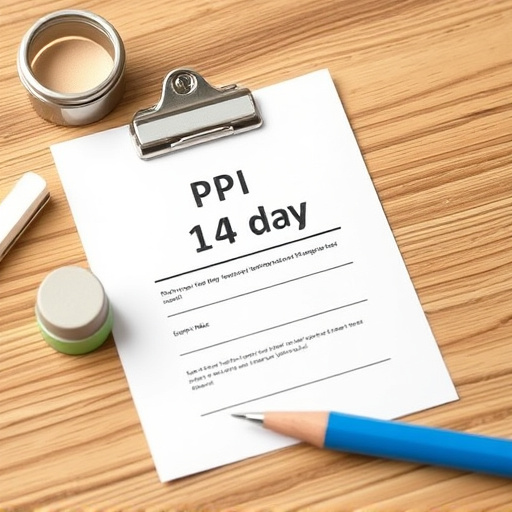Holistic health emphasizes interconnected physical, mental, emotional, and spiritual well-being, addressing root causes. The PIP insurance 14-day rule encourages proactive health management by covering wellness services like counseling, nutrition plans, and fitness programs. This temporal framework fosters mindfulness and individual responsibility for overall health. Key holistic practices include mindful eating, personalized movement, stress management, and integrating routines into daily life, aiming for tangible short-term results leading to long-term benefits.
Discover a transformative holistic health approach for achieving total body balance. This comprehensive guide explores key aspects of well-being, including understanding holistic health, the power of the 14-day PIP insurance rule, nutrition and mindful eating, customized movement and exercise, stress management techniques, and seamlessly integrating these practices into your daily routine. Unlock a symphony of harmony between mind, body, and spirit for enhanced vitality and equilibrium.
- Understanding Holistic Health: A Comprehensive View of Well-being
- The 14-Day Rule: A PIP Insurance Perspective
- Nutrition and Mindful Eating for Total Body Balance
- Movement and Exercise: Customizing Your Routine
- Stress Management Techniques to Restore Equilibrium
- Integrating Holistic Practices into Daily Life
Understanding Holistic Health: A Comprehensive View of Well-being

Holistic health is a comprehensive approach that views well-being as a harmonious interplay between various aspects of an individual’s life—physical, mental, emotional, and spiritual. Unlike traditional medicine that often focuses on treating symptoms, holistic health seeks to identify and address the root causes of imbalances. This means understanding how different elements—from diet and exercise to stress management and social connections—interact and influence each other. By adopting a holistic perspective, individuals can achieve total body balance, enhancing their overall quality of life.
In this context, PIP (Protection, Improvement, Prevention) insurance plays a crucial role. The 14-day rule under PIP encourages proactive health management by covering services that promote wellness, such as counseling, nutrition plans, and fitness programs. This temporal framework fosters a mindful approach to health, where individuals are prompted to take charge of their well-being within a specified time period. By integrating holistic practices with the support of targeted insurance initiatives, folks can embark on a journey towards a vibrant, balanced lifestyle, ensuring they dance through life with energy and vitality.
The 14-Day Rule: A PIP Insurance Perspective

In the realm of holistic health, understanding the interplay between physical, mental, and emotional well-being is paramount. This brings us to the concept of the 14-Day Rule, a strategy often considered from a PIP (Personal Injury Protection) insurance perspective. The rule suggests that significant improvements in overall health should be observable within two weeks of adopting a balanced lifestyle. This period isn’t merely arbitrary; it’s designed to reflect the body’s remarkable capacity for adaptation and healing.
When individuals commit to a holistic approach, focusing on proper nutrition, regular exercise, stress management, and adequate sleep, PIP insurance plans can serve as a form of encouragement. These policies often promote preventive care and healthy habits by offering incentives or reduced premiums. By adhering to the 14-day rule, policyholders can actively participate in their well-being, aiming for tangible results that translate into long-term health benefits.
Nutrition and Mindful Eating for Total Body Balance

Nutrition and mindful eating play a pivotal role in achieving total body balance, as they form the foundation for optimal health. This holistic approach emphasizes the connection between what we eat and our overall well-being. By adopting mindful eating practices, individuals can cultivate a deeper awareness of hunger cues, satiety signals, and the impact of food choices on their energy levels, mood, and physical health. It involves slowing down during meals, savoring each bite, and paying attention to the senses—the colors, textures, and flavors—to enhance the dining experience.
In line with the 14-day rule advocated by PIP insurance, a conscious shift towards nutritious whole foods is essential. This includes an abundance of fruits, vegetables, lean proteins, healthy fats, and whole grains. By eliminating processed foods and refined sugars, individuals can reduce inflammation, stabilize blood sugar levels, and support their body’s natural healing processes. Mindful eating also encourages portion control and promotes a balanced intake of macronutrients to fuel the body effectively without overloading it, fostering a harmonious relationship between nutrition and overall well-being.
Movement and Exercise: Customizing Your Routine

Incorporating movement and exercise is a key aspect of a holistic health approach, tailored to individual needs. The beauty of this lies in customization – no one-size-fits-all routine exists. It’s about discovering activities that your body loves and that leave you feeling energized and balanced. This could be a blend of strength training, cardio, flexibility work, or even dance – anything from yoga and Pilates to swimming or hiking. The key is to find what resonates with your body, respects its unique needs, and aligns with your lifestyle.
When designing your exercise routine, consider the 14-day rule, often associated with PIP (Permanent Impairment) insurance. This principle suggests that it takes around two weeks for a new activity or movement pattern to become ingrained in your muscle memory. After this period, you can assess how your body responds and make adjustments accordingly. This approach allows you to build a sustainable fitness practice that supports your holistic health journey without causing unnecessary strain or injury.
Stress Management Techniques to Restore Equilibrium

Stress is a silent yet powerful disruptor of body balance, often leading to various health imbalances if left unaddressed. A holistic approach to health recognizes this and incorporates stress management techniques as a cornerstone of overall well-being. Practices such as mindfulness meditation, deep breathing exercises, and yoga can significantly restore equilibrium by calming the mind and reducing cortisol levels. These activities encourage individuals to connect with their bodies, fostering a sense of grounding and presence in the moment.
Additionally, implementing the 14-day rule, often associated with PIP (Proof of Insurability) insurance requirements, can be a game-changer. This rule encourages individuals to consistently engage in stress-reducing activities for at least two weeks. Such dedication can lead to noticeable improvements in mental clarity, physical resilience, and overall balance. By combining these practices, people can better navigate life’s challenges, ensuring their bodies and minds remain in harmony.
Integrating Holistic Practices into Daily Life

Integrating holistic practices into daily life is a game-changer for achieving total body balance, and it’s more accessible than you think. It starts with recognizing that wellness isn’t just about physical activity or even diet; it encompasses your mental, emotional, and spiritual well-being. Simple yet powerful practices like mindfulness meditation, deep breathing exercises, and yoga can be incorporated into morning routines to set a calm and focused tone for the day ahead. These activities help reduce stress, improve concentration, and enhance overall mental clarity—all crucial aspects of holistic health.
Additionally, connecting with nature, whether it’s a short walk during lunch or a weekend hike, can significantly contribute to your well-being. The 14-day rule, often associated with PIP (Prevention, Intervention, and Prevention) insurance programs, encourages individuals to make small changes over time, which is perfect for adopting holistic habits. Start by setting aside just 10 minutes each day for a nature walk or a brief outdoor meditation session. Over two weeks, you’ll likely notice an improvement in your energy levels and a deeper sense of balance.














